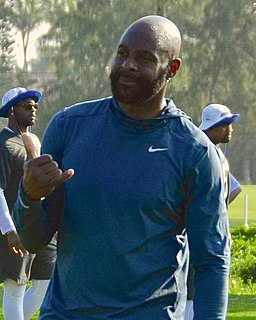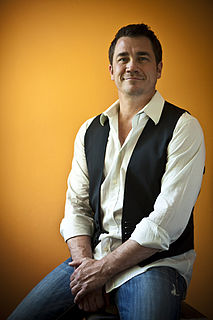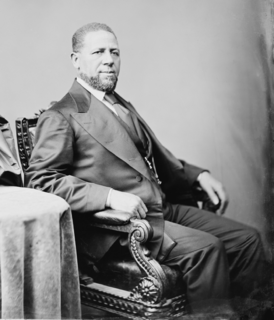A Quote by Fannie Lou Hamer
These people in Mississippi State, they are not "down"; all they need is a chance. And I am determined to give my part not for what the Movement can do for me, but what I can do for the Movement to bring about a change in the State of Mississippi.
Quote Topics
Related Quotes
[My mother] tried so hard to make life easy for us. Those are the things that forced me to try to do something different and when this Movement came to Mississippi I still feel it is one of the greatest things that ever happened because only a person living in the State of Mississippi knows what it is like to suffer; knows what it is like to be hungry; knows what it is like to have no clothing to wear.
Coming from the South, I just felt you had to work just a little bit harder. It was not going to be handed to you. I’d get the letters from all the major schools but no one came out to talk to me face to face until this small, dominant black school, Mississippi State Valley University sent a coach out to me. I had a chance to talk to him and he said, ‘Hey Jerry, we’re going to be doing some great things at Mississippi Valley State University and we would love to have you there.’
The only thing we took out was the Constitution of the State of Mississippi and the interpretation of the Constitution. We had 63,000 people registered on the Freedom Registration form. And we tried from every level to go into the regular Democratic Party medium. We tried from the precinct level. The 16th of June when they were holding precinct meetings all across the state, I was there and there was eight of us there to attend the meeting, and they had the door locked at 10 o'clock in the morning. This is what's happening in the State of Mississippi.
It's easy to forget history or give it a cliff notes. The cliff notes of history. But mainly, so much of what happens in 'Eyes on the Prize' happened in Jackson, Mississippi. Jackson, Mississippi isn't really known for any other touchstone to the movement, other than Medgar Evers being killed. There were sit-ins and riots and atrocities.
In less than a century we experienced great movement. The youth movement! The labor movement! The civil rights movement! The peace movement! The solidarity movement! The women's movement! The disability movement! The disarmament movement! The gay rights movement! The environmental movement! Movement! Transformation! Is there any reason to believe we are done?
It is only when we speak what is right that we stand a chance at night of being blown to bits in our homes. Can we call this a free country, when I am afraid to go to sleep in my own home in Mississippi?... I might not live two hours after I get back home, but I want to be a part of setting the Negro free in Mississippi.
I think there will be great leaders emerging from the State of Mississippi. The people that have the experience to know and the people not interested in letting somebody pat you on the back and tell us "I think it is right." And it is very important for us not to accept a compromise and after I got back to Mississippi, people there said it was the most important step that had been taken.

































